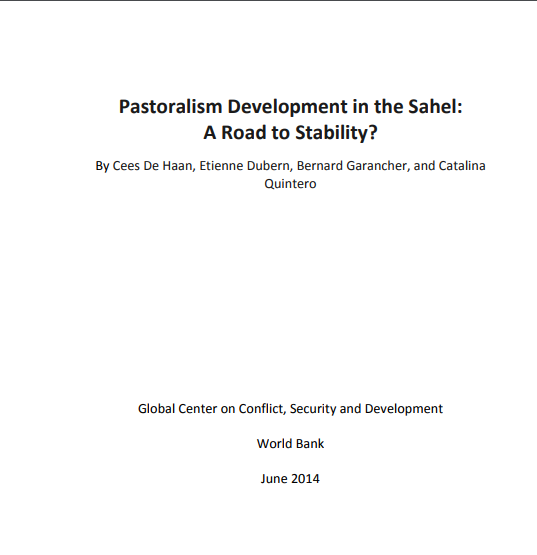Resource information
Pastoralism is one of the dominant economies of the Sahel and is by far the main economy on the fringes of the Sahara, a zone of which recently some areas have become unstable. It is estimated that about 50 million people rely on pastoralism for their livelihoods in the Sahel and the Saharan fringes, and most of them are poor. However, the Northern parts of the Sahel and the Sahara have seen a rapid recrudescence of trafficking and other illegal activities. Some areas are now home to extremist groups, several of which are involved in terrorist activities. Although the recent violence has led to relatively few casualties compared to the large conflicts Africa experienced in the 20th century, it has exacted a huge human and economic cost. It has also caused a major loss of revenues and significantly impacted economic development, in particular tourism and social infrastructure. The insecurity and instability in these areas leads directly to increasing poverty for already poor pastoralists, and has a ripple effect on the economic wellbeing of the entire population of the Sahelian countries. While only a very small part of the population is thought to be directly and actively involved in these criminal activities, it is critical to understand whether that large part of dry land peoples that is not directly involved, is vulnerable to these kinds of activities. In most countries, pastoral populations are a minority, and are located in the periphery zones and areas that are difficult to access, often leading to disenfranchisement and poor integration in to the rest of the country. Furthermore, pastoral groups on the Sahel-Sahara region have had since the colonial period a tense history with the state apparatus due to the imposition of new forms of governance that clashed with traditional structures and identities Most pastoralists are peaceful people trying to ascertain their livelihoods in one of the harshest environments known to humanity. Also, it is clear that because pastoralists are the major socioeconomic group living in the fringes of the Sahara and the Sahel areas, that are prone to instability and insecurity, they could and should play a central role in the efforts to promote peace in the region.



